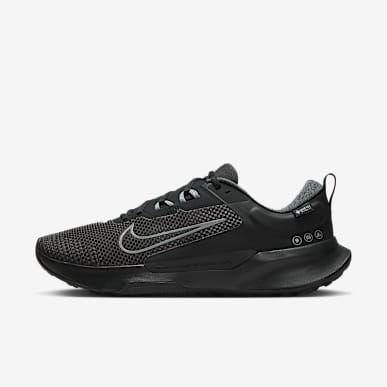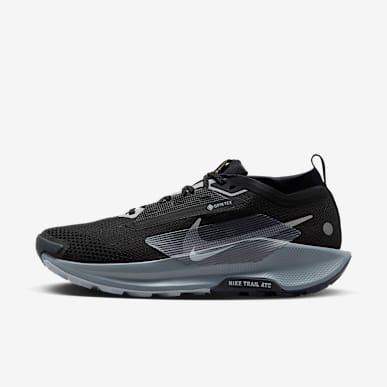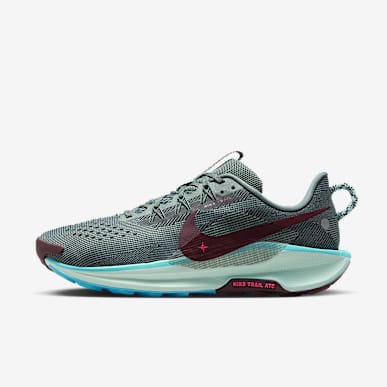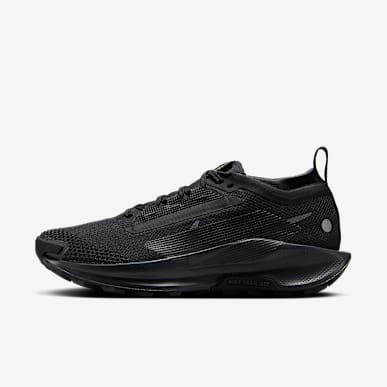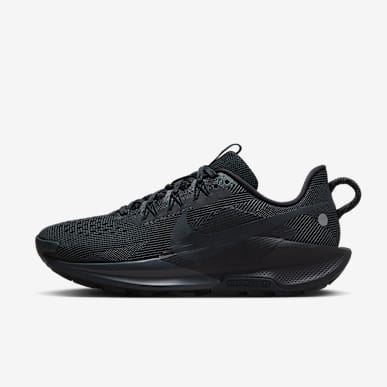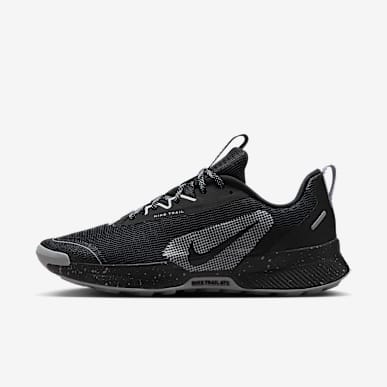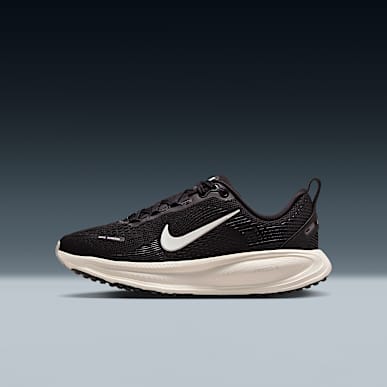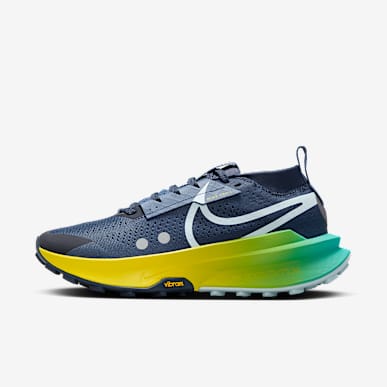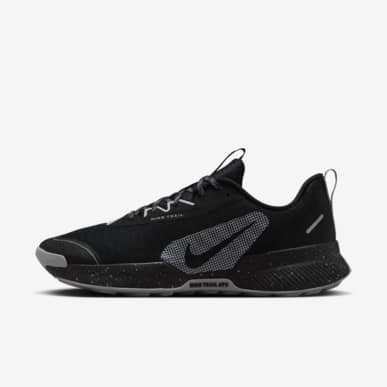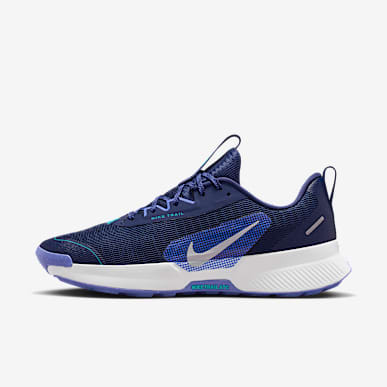Everything You Need to Get Started Trail Running
Buying Guide
Trail running is a sport that anyone can get into quickly, but it helps to have the right clothing, footwear and gear to support running in an outdoor environment. Here are the essentials.

There's nothing quite like ditching the stuffy gym to run on a trail out in the fresh air. Getting a good workout whilst enjoying the great outdoors is multitasking at its finest. You'll encounter hills and different types of terrain, allowing you to burn calories and rapidly develop your strength. Trail running can also improve your mental focus and balance.
But before you run off into the sunset, there are a few trail-running essentials you should pick up. You'll want to have clothing and footwear that support running in an outdoor environment, as well as trail-running gear to ensure you stay safe and hydrated during your run. Consider this list a starter pack for every athlete looking to get the most out of their time on the trail.
Must-Have Clothing for Trail Runs
The type of clothing you'll need will depend somewhat on the geography and weather conditions on the trail. In general, you'll want to wear something that is breathable and will keep you dry while you sweat. Moisture-wicking tops and shorts are a good starting point. Nike Dri-FIT fabric features a microfibre construction designed to wick moisture away from your skin. Many Nike Dri-FIT styles are made with recycled polyester, which reduces waste and carbon emissions, so you can feel good about protecting the environment that brings you joy on the trail.
You'll also want clothing that moves with you. Choose shorts or trousers with stretch and a comfortable waistband. You may even opt for compression tights or shorts with a compression liner for more support and less chafing.
In case you encounter rain or chilly weather, you'll also need a lightweight, weather-resistant trail-running jacket that protects you from both wind and water. And if you're running during colder months, you may need a long-sleeve, wool base layer to keep you warm, or even an insulating fleece.
Trail Clothing Checklist
- Moisture-wicking ankle socks and underwear
- Stretchy running trousers or shorts that don't chafe
- Dri-FIT or wool base-layer top
- Weather-resistant running jacket
- Fleece layer for colder weather
- Hat/visor and/or sunglasses
- Supportive sports bra for women
Trail-Running Shoes
If there is one item you absolutely should not leave home without, a durable pair of trail-running shoes is probably it. After all, you can't tear up the trail in sandals. You'll need a pair of all-weather shoes with rugged traction to keep you safe and comfortable while you're running or hiking.
There are a couple of important questions to ask when choosing a pair of trail-running shoes:
- Would you rather have extra cushioning underfoot or a shoe that's lightweight and responsive? Barefoot shoes are lighter in weight and allow you to feel the trail, while other shoes have plenty of midsole cushioning to keep you comfy on longer runs.
- Where will your run take you? If you're running on especially rocky terrain, you may need a pair of shoes with toe guards and a stiffer, more durable construction. If you're running in muddy conditions, you'll need shoes with slip-resistant rubber, waterproof materials, an instep with plenty of support and wide spacing between the lugs.
Trail-Running Backpack or Gilet
When you're moving at full speed, carrying a water bottle just isn't practical. A soft flask is an option, but a hydration pack will allow you to stay hydrated without slowing down. You can get a backpack with a water bladder and drinking tube or a hydration gilet. Both provide similar features, but a hydration backpack typically has more room for other gear, such as food or extra layers of clothing.
Hydration packs come with water bladders in different sizes, so choose a capacity that will accommodate your longest trail run. If you're just going for a shorter hike, you can partially fill the pack to avoid unnecessary weight. You'll also want to make sure the torso length and hip belt make for a comfortable and secure fit. A women-specific backpack can sometimes provide a better fit for female athletes. Look for backpacks with a chest or sternum strap to help distribute weight evenly.
If you're trying to stay as light as possible, consider a trail-friendly hip pack or running belt. These low-profile items will give you extra space to hold a snack, smartphone or wallet without weighing you down.
GPS Fitness Tracker
You can survive a trail run without a gadget on your wrist, but a GPS watch or fitness tracker will allow you to track your runs and ensure that you don't get lost in the wilderness. When choosing a device, look for something durable and weather-resistant with a long battery life. A watch with a "return to start" feature can be a lifesaver if you lose track of the trail, and you'll also want one that can track your distance, steps and altitude climbed.
Head Torch
If you want to be able to run freely on the trail regardless of the time of day, you'll need a running head torch to light your way. Make sure you get one that's bright enough and also able to withstand the elements. And pay attention to the weight and fit when choosing the right head torch for you.
Wireless Earphones
Emergency Gear
Running off the beaten path comes with some safety risks, so you should come prepared with the right emergency gear. You'll need:
- A first aid kit
- Suncream and insect repellent
- Blister pads
- An emergency whistle
- A foil blanket
- Emergency contact and medical information
- A backup charger for your phone and GPS watch
